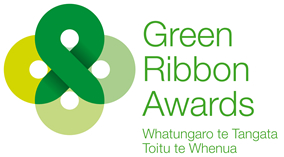The Trustees wish to thank all those who have generously supported us.
Our work continues, please help our cause.
100% of every donation goes directly toward the Trusts restoration effort
Pohutukawa Trust New Zealand is a charitable trust incorporated under the Charitable Trusts Act 1957. Registered Charity number CC23836. The Trust was established by a group of Kawau Island’s private landowners in March 1992. Events leading to the Trust’s beginnings go back to 1955 when New Zealand’s looming possum problem was first positively identified on Kawau.
Thirty years later, the New Zealand Forest Service said it was hopeless to consider doing anything about the destruction of the Island’s flora caused by introduced animals. Kawau Island was “written off”.
The integrity of the Kawau Island ecology had collapsed due primarily to the presence of browsing and predator animal pests.”Kawau Island has no particular significance for its botany nor for its native wildlife values” and “Kawau Island is of historical rather than botanical interest” were some of the assessments. It was said that the ecological changes caused by these animals cannot now be reversed.
The landowners did not agree with this and stepped in with an initiative to save the native flora and fauna. By 1990 some landowners had saved Pohutukawa trees and these were blooming again, some for the first time in 20 years. Encouraged by this success, the landowners established the Trust to provide long term organisation and governance with the objectives: “To rehabilitate the native flora and fauna of Kawau Island, and “To promote the conservation of indigenous species in New Zealand”.Since its launch in March 1992, as resources became available, work has steadily increased to remove the introduced pest animals and preserve the forest and bird life that remained.
Native trees and plants once thought to be destined not to survive on the island have responded positively to supporters efforts, which include the reduction in Opossum numbers (estimated 10,000 removed).
Landowners also wished to provide for sustainable land use on the Island for the long term future of the community. In this context rehabilitate means “to restore to former condition” – to restore the severely degraded Kawau Island ecosystems.
The Island provides a valuable corridor for native birdlife making the journey from the neighbouring, world renowned, wildlife sanctuary on Little Barrier Island to the
Pohutukawa Trust New Zealand was established by the Weaver family ( Ray Weaver ) with the support of the first Mayor of Rodney Sir Gordon Mason in March 1992. As membership and resources grew work began on planning for removal of Wallabies and Opossums and some other introduced pest animals as awareness of the problem was developed through regular communications. By then bird life was responding positively to the reduction in Opossum numbers and Brown Teal were seen again in Hokimai Bay (1992), as well as increasing numbers of Kereru, Tui, and occasionally Bellbirds and Kaka. Efforts were made to get a clear position concerning wallabies on the public Historic Reserve land, which was the main impediment to achieving the Trust's objectives. Landowners increased their planting of native trees, mostly inside protective fences and animal pest control was stepped up. Work with the Auckland Council, lead firstly to declaring wallabies an animal pest in the region and then, due to support for the private landowner initiative, upgrading the status in 2002 to eradication.
By the early 2000”s much progress had been made, particularly north of Bon Accord Harbour with many native plants surviving and more native birds seen, including more recently sightings of more Kiwi.
 Award Winning Environmental Protectionists.
Award Winning Environmental Protectionists.
The Trust was awarded a National Green Ribbon Award during 2003 for outstanding leadership and commitment to environmental protection, and was a runner-up in the ARC E-Awards that year. The landowners played an important part in assisting Waterfall Springs Conservation Association (Australia) to return the endangered Brushtail rock wallaby to Australia. There were only small numbers on Kawau and all animals that could be economically caught were returned and are now in a successful captive breeding program.
Pohutukawa Trust New Zealand is well aligned with the 2016 Government announcement aiming to make New Zealand predator free by 2050. The Trust intends to complete the animal pest eradication phase of the project on Kawau Island as quickly as possible.

